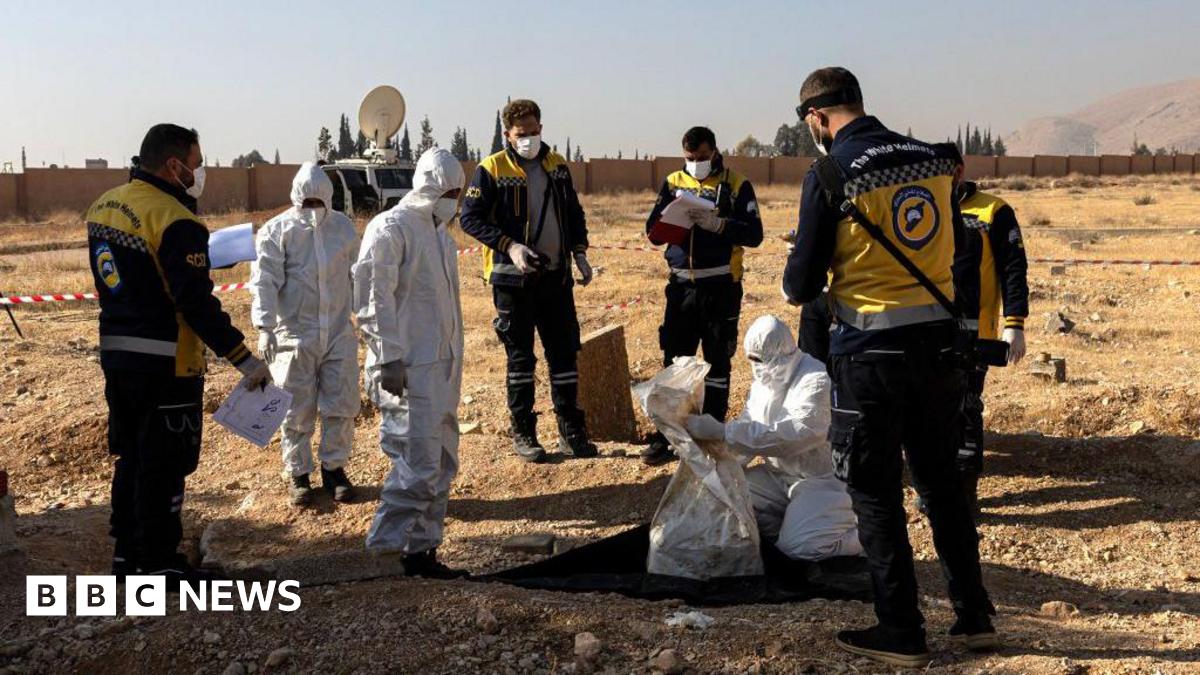Less than 10km (six miles) from the busy Damascus city centre, in the north-western suburb of Adra, an arid stretch of land is sealed off with cement walls.
As you drive in, on the left-hand side, a team of rescuers from the White Helmets humanitarian organisations are seen searching for mass graves.
Over the past few days, several videos were posted online about mass graves where Bashar al-Assad’s regime buried victims of torture inside Syrian prisons.
The White Helmets rescuers have found a small hole on one block where several big white plastic bags are filled with remains of bodies.
A message simply reads: “Seven bodies, eighth grave, unknown”.
The team have started pulling out the remains, skulls and bones, which they collected. DNA samples are being put separately in black body bags for documentation and further analysis.
Ismael Abdullah, one of the rescuers, says they are carrying a heavy burden on their shoulders.
“Thousands of people are missing. It is going to take time – a lot of it – to get anywhere near the truth about what happened to them,” he tells me.
“Today, after receiving a call about possible mass grave here, we found on the ground the remains of seven civilians.”
He adds that all the necessary procedures were carried out “so in the future we can identify those people who were killed”.
The team are among a few those who have been trained on documenting and collecting forensic evidence.
Human rights groups say more than 100,000 people have disappeared in Syria since 2011.
In the past week, Hayat Tahrir al-Sham (HTS) rebels – who ousted Assad – opened up several prisons and detention centres across Syria.
Rights group have concluded that more than 80,000 of the missing are dead. Another 60,000 are believed to have been tortured to death, according to the UK-based Syrian Observatory for Human Rights (SOHR).
Locals are reporting more and more locations of mass graves across Syria, and the Syrian Emergency Task Force (SETF), a US-based non-governmental organisation, says that nearly 100,000 bodies have been found.
Human Rights Watch says such graves should be protected and investigated.

